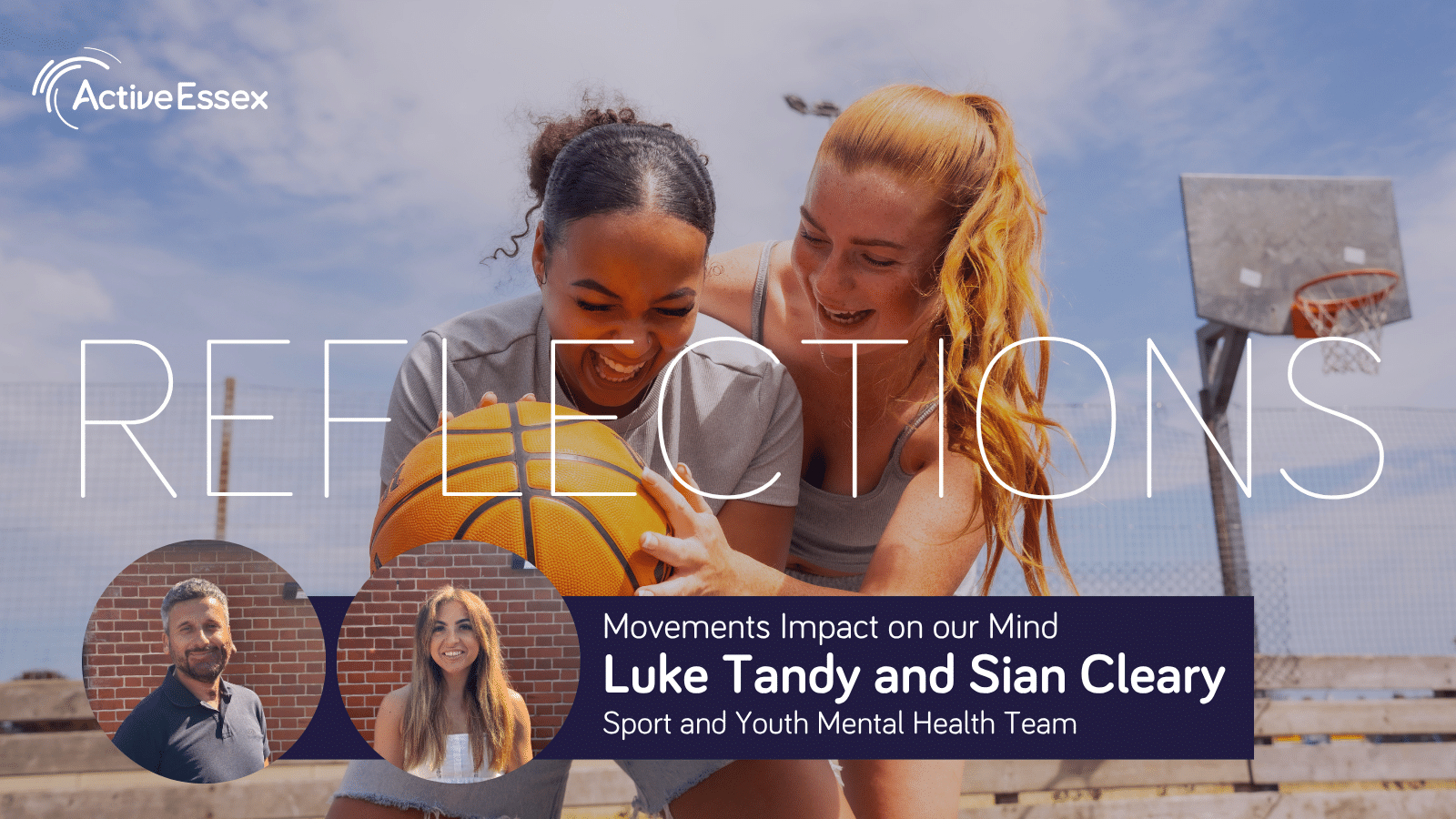As we reflect on World Mental Health Day that took place this October, it’s a timely moment to pause and reflect on the deep connections between physical activity and mental wellbeing. While the evidence is out there for all to see, some still are unaware that movement is one of the five recognised ways to wellbeing. The lived experiences and stories behind that data and its numbers are what truly bring it to life though.
This month, we’re hearing from both members of our Young people’s mental health and wellbeing team, Luke and Sian, whose journeys with physical activity and mental health and the things they’ve learnt in their role offer powerful insights into why movement matters not just for young people, but for all of us.
Luke: Movement as a lifelong anchor
“When I think about the links between physical activity and positive mental health, I sometimes worry we assume everyone understands how movement can help maintain and improve emotional wellbeing. The evidence is compelling, and being physically active is widely recognised as one of the five ways to wellbeing, but does knowing this actually change how we behave?
I won’t try to answer that, but I will share my own experience in the hope it helps others reflect on their own relationship with movement and mental health.
As a relentlessly energetic and easily distracted child, sport was my outlet, though I didn’t realise it at the time. It helped me feel calmer, more focused, and gave my family and teachers a bit of respite! Looking back, I now see how essential sport was in keeping me emotionally regulated. I was lucky to have access to a variety of sports growing up, though I know that’s not the case for every young person and that’s something we’re working hard to change across Essex.
Fast forward 30 years, and while the intensity and competitiveness of my activity has changed, the need to move to reduce stress and calm my mind is just as strong. These days, I’m more intentional about it. I’ve swapped football boots and tennis rackets for walking boots and golf clubs, but the benefits to my mental health remain the same.
As a father of two teenage girls, and also having worked in front clinical services as a physiotherapist in the NHS for over 20 years, I have seen firsthand the challenges young people face today. The statistics are sobering: 1 in 6 young people have poor mental health, and half of all mental health problems are established by age 14 and 75% by age 24. That’s why I’m passionate about my work leading our youth mental health and physical activity programme at Active Essex Foundation. It’s a privilege to help build capacity in the voluntary and community sector, embedding physical activity earlier in care pathways and supporting young people at the point of need.
The Young People’s Mental Health and Wellbeing Programme, delivered by Active Essex Foundation, is designed to support children and young people (aged 5-25 years) most at risk of poor mental health outcomes. By working with community organisations, we’re embedding physical activity into mental health support in a way that’s safe, inclusive and responsive to local needs, helping young people access support in environments that feel familiar and empowering.
I’m also excited to be working with the wider Active Essex team on our Find Your Active: Move For Your Mind campaign, helping people of all ages across Essex engage with movement for better mental health. This campaign is all about encouraging individuals to discover the type of activity that works for them — whether it’s walking, dancing, gardening or sport — and recognising how movement can support emotional wellbeing at every stage of life.
Mental health doesn’t take a day off — so I encourage everyone to prioritise their own emotional wellbeing every day of the year. Explore how movement makes you feel and consider how you can support others to do the same. Now, I’m off for a walk — I’m feeling a little tense, and I know it’ll help.”
Sian: Movement as a tool for empowerment and recovery
“Mental health has always been a central part of my life, through my own experiences and supporting those close to me. I’ve lived with anxiety for as long as I can remember, but it became especially intense after the sudden death of my dad when I was 13. That trauma deeply affected me, and it was during that time I turned to physical activity – running on the school field during lunch breaks became my escape and coping mechanism.
What started as a way to manage my mental health, and diet grew into a lifelong passion. I was given permission to use the school gym, usually reserved for GCSE PE students and discovered weight training. It gave me strength and emotional release, and over the years, movement became my anchor.
From leading my university lacrosse team as President to competing in bodybuilding, physical activity has given me power, routine, and self-care. Now, daily exercise, whether it be lifting, cardio, or walking is now how I prepare mentally for the day. It keeps me mindful, reflective, and grounded. It’s non-negotiable.
Having worked through my own eating disorder, I’m passionate about promoting a sensitive and nourishing approach to exercise, especially for women and girls. Movement should support wellbeing — not be a punishment, but a source of empowerment.
In my role as Mental Health Development Officer, I get to bring this passion into my work. I build relationships with local partners, support training and funding opportunities, and help them use movement to engage young people in meaningful ways. These projects break down barriers and offer alternatives to traditional therapy, which isn’t always the right fit, especially with long waiting lists.
I’m also thrilled to be supporting our SMART courses, which allow me to combine my love for nutrition, safe exercise, and especially working on the Girls Inspired courses. It’s incredibly rewarding to help young people discover the same outlet and strength that movement has given me.”
Bringing It Together: Movement as a mental health tool
Luke and Sian’s stories remind us that physical activity is more than just exercise, it’s also a powerful tool for emotional regulation, resilience, and recovery. Whether it’s helping young people navigate life’s challenges or supporting our own mental health as adults, movement offers a pathway to feeling better, thinking clearer, and connecting more deeply with ourselves and others.
Through the Find Your Active: Move For Your Mind campaign, Active Essex is working to make movement more accessible and inclusive, encouraging people across the county to find the type of activity that suits them best and supports their mental wellbeing. Whether it’s a walk in the park, a dance class, or a few minutes of stretching, every movement counts.
As we continue to build capacity across Essex to support mental health through physical activity, let’s also take a moment to reflect on our own relationship with movement. What role does it play in your life? How can we encourage others to find their own active outlet?




